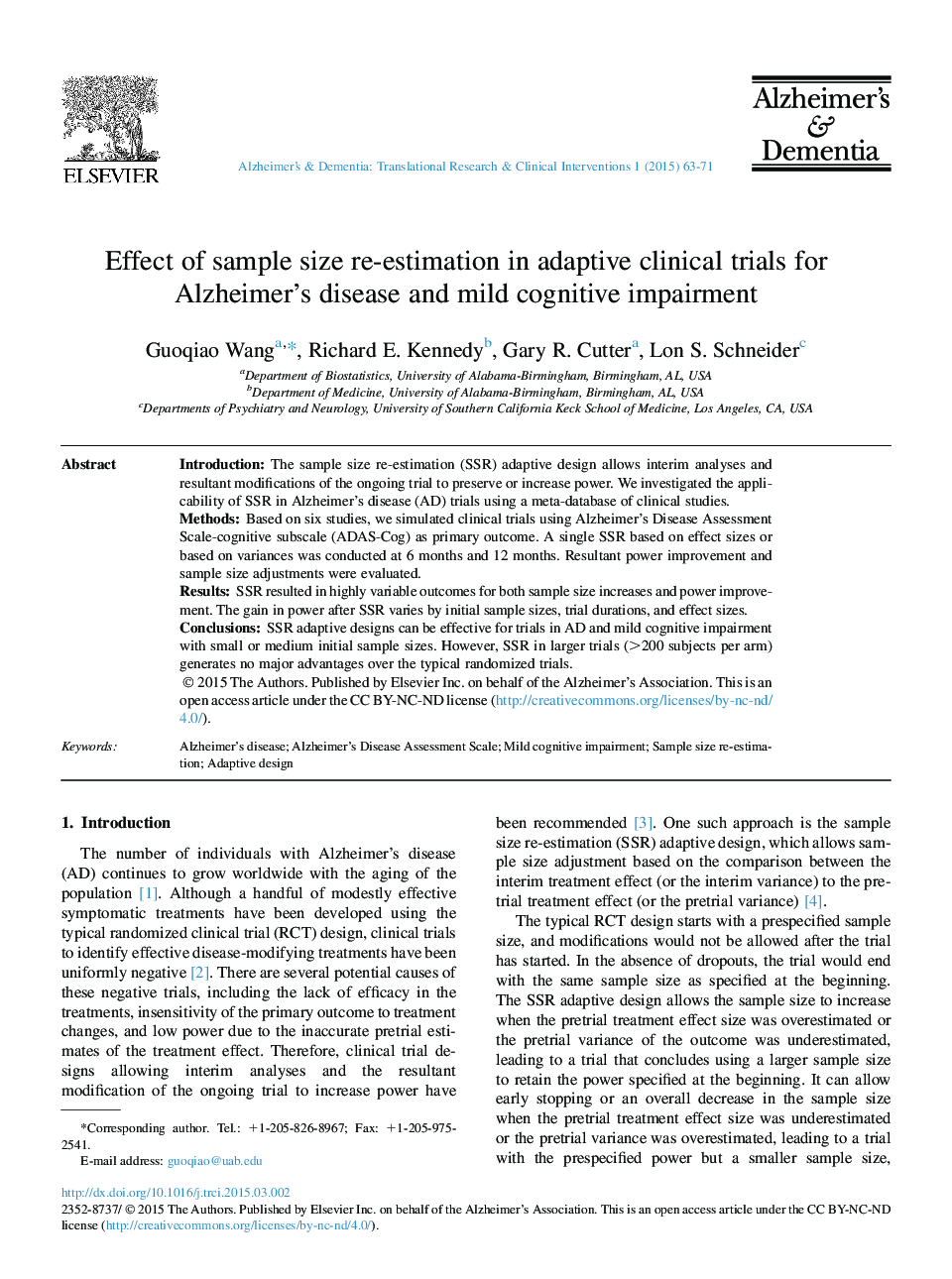| Article ID | Journal | Published Year | Pages | File Type |
|---|---|---|---|---|
| 3032107 | Alzheimer's & Dementia: Translational Research & Clinical Interventions | 2015 | 9 Pages |
IntroductionThe sample size re-estimation (SSR) adaptive design allows interim analyses and resultant modifications of the ongoing trial to preserve or increase power. We investigated the applicability of SSR in Alzheimer's disease (AD) trials using a meta-database of clinical studies.MethodsBased on six studies, we simulated clinical trials using Alzheimer's Disease Assessment Scale-cognitive subscale (ADAS-Cog) as primary outcome. A single SSR based on effect sizes or based on variances was conducted at 6 months and 12 months. Resultant power improvement and sample size adjustments were evaluated.ResultsSSR resulted in highly variable outcomes for both sample size increases and power improvement. The gain in power after SSR varies by initial sample sizes, trial durations, and effect sizes.ConclusionsSSR adaptive designs can be effective for trials in AD and mild cognitive impairment with small or medium initial sample sizes. However, SSR in larger trials (>200 subjects per arm) generates no major advantages over the typical randomized trials.
